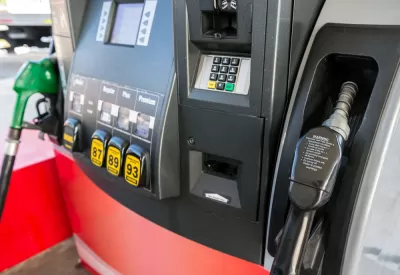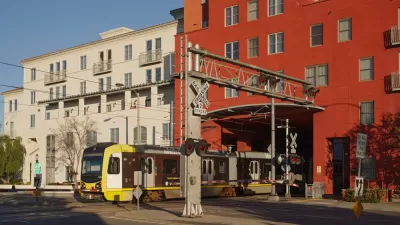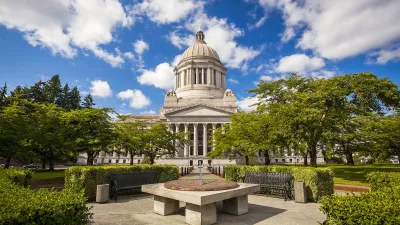Low-income families suffer most from dramatic spikes in housing and transportation costs, but governments can soften the impact through a series of actions.

Low-income households will bear the brunt of inflation and the dramatic rise in the cost of rent and gas, writes Yonah Freemark of the Urban Institute. "Most low-income workers—like most Americans—commute by car, and though electric vehicles are gaining popularity, few Americans currently have them, and those who do are relatively wealthier on average (PDF)." When it comes to housing, "families under the federal poverty level are much more likely to rent their homes than own them, exposing them to fluctuations in housing costs as landlords raise rents."
Freemark describes several suggested short-term approaches that governments at all levels can take to address the needs of low-income families and ease the burdens of high housing and transportation costs:
- "Continuing to identify mechanisms to help renters remain in place by enacting policies to reduce evictions."
- "Reducing local transit fares, increasing bus service, and creating temporary street improvements for transit and biking that give people real alternatives to driving."
- "Significantly expanding the federal government’s Housing Choice Voucher Program."
Long-term tools, writes Freemark, could include more robust rent stabilization mechanisms, zoning reform that permits higher-density housing, investment in public transit, and making land use and transportation planning decisions that reduce the need to drive and provide safe, effective multimodal options.
FULL STORY: What Rising Gas and Rent Prices Mean for Families with Low Incomes

Alabama: Trump Terminates Settlements for Black Communities Harmed By Raw Sewage
Trump deemed the landmark civil rights agreement “illegal DEI and environmental justice policy.”

Study: Maui’s Plan to Convert Vacation Rentals to Long-Term Housing Could Cause Nearly $1 Billion Economic Loss
The plan would reduce visitor accommodation by 25% resulting in 1,900 jobs lost.

Planetizen Federal Action Tracker
A weekly monitor of how Trump’s orders and actions are impacting planners and planning in America.

Parklet Symposium Highlights the Success of Shared Spaces
Parklets got a boost during the Covid-19 pandemic, when the concept was translated to outdoor dining programs that offered restaurants a lifeline during the shutdown.

Federal Homelessness Agency Places Entire Staff on Leave
The U.S. Interagency Council on Homelessness is the only federal agency dedicated to preventing and ending homelessness.

Restoring Northern India’s Himalayan ‘Water Temples’
Thousands of centuries-old buildings protect the region’s natural springs and serve as community wells and gathering places.
Urban Design for Planners 1: Software Tools
This six-course series explores essential urban design concepts using open source software and equips planners with the tools they need to participate fully in the urban design process.
Planning for Universal Design
Learn the tools for implementing Universal Design in planning regulations.
Caltrans
Smith Gee Studio
Institute for Housing and Urban Development Studies (IHS)
City of Grandview
Harvard GSD Executive Education
Toledo-Lucas County Plan Commissions
Salt Lake City
NYU Wagner Graduate School of Public Service





























